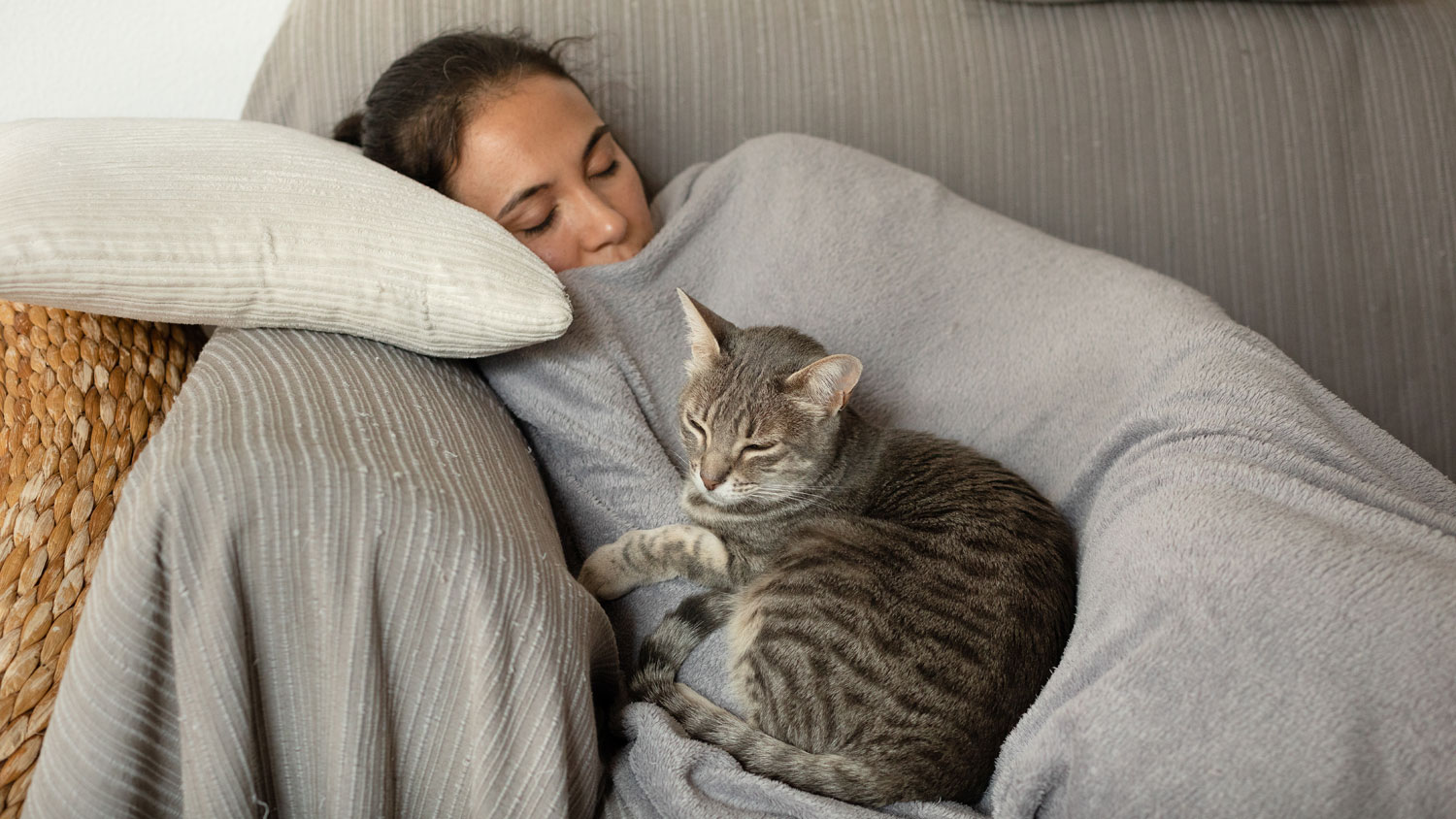Sleep expert reveals why you feel sick after naps & how to stop it
Feel sick after a nap? Here’s why & how to nap more effectively


If you’ve had a tough night’s sleep or you’re finding it hard to concentrate without your eyes wanting to close, a quick daytime nap could be the answer to your problems. And let’s be honest, who doesn’t love a good nap? But if you often feel sick, groggy or sleep deprived when you wake up, chances are you’re napping wrong.
I know what you’re thinking: how is it possible to nap wrong?! Well, there are many reasons why your nap might be making you feel sick, from disrupting your routine to sleep inertia. To find out more, I spoke to sleep expert & CEO of MattressNextDay, Martin Seeley who explained why you might feel worse after a nap and his top tips for having the perfect nap possible.
- Need a new sleep set-up? Check out our guide to the best mattress
- Get cosy with the best duvet or the best weighted blanket
Why you feel sick after a nap
According to Seeley, there are many factors that can impact how effective your nap is and how it will leave you feeling afterwards. First is the disruption of your sleep schedule. Going to bed at the same time each night and waking up at the same time each morning makes a huge difference to your circadian rhythm and even the slightest of changes can disrupt it. Not only can napping delay your bedtime, but it can also “make it harder for you to fall asleep at night, which can lead to sleep deprivation, fatigue and feelings of sickness”.
Another reason you might feel rough after a nap is because you’re napping for too long. This feeling of grogginess and disorientation is known as sleep inertia. The reason sleep inertia occurs is because of the duration of your nap, your brain wants to keep sleeping and complete a full sleep cycle, so when you wake abruptly out of a long deep nap, you may have “feelings of sickness, dizziness and headaches.”
Finally, you might feel ill after a nap if you’re sleeping in a bad environment. It doesn’t matter too much if you nap on a mattress or on the sofa, but if you’re “napping in a nosy or uncomfortable environment, it can disrupt your sleep quality and cause feelings of sickness”.
4 tips for the best napping experience

1. Time your nap
When it comes to napping, it’s all about timing. Seeley recommends to “aim for a nap that lasts between 20-30 minutes as this is usually enough time to recharge without feeling groggy when you wake up.” Naps that are longer than half an hour can lead to sleep inertia so to avoid oversleeping, set an alarm so your nap lasts for the right amount of time. For more details, see how long you should nap for.
Get all the latest news, reviews, deals and buying guides on gorgeous tech, home and active products from the T3 experts
2. Find a comfortable place
To have a good nap that leaves you feeling refreshed, you should try to find a comfortable and quiet place to settle down. Excess noise, an uncomfortable position and being too hot or too cold can disrupt your sleep and make you feel sluggish when you wake up. To avoid this, “make sure the temperature is comfortable, the lighting is low and the noise level is minimal, and if you can, try to lie down instead of sitting up.”
3. Relax
Before having a nap, try to take a few minutes to relax before you settle down. This can help you drift off faster and have a proper break rather than trying to force yourself to fall asleep and having a disjointed rest. Seeley suggests “deep breathing or meditation to calm your mind and body.”
4. Nap regularly!
The final tip – which might surprise you – is to nap regularly. What this means is if you feel you need a nap most days, try to schedule your nap for the same time each day so you don’t interrupt your nighttime sleep schedule. This will also “help your body adjust to a regular nap schedule and make it easier to fall asleep and wake up.”

Beth is Home Editor for T3, looking after style, living and wellness. From the comfiest mattresses to strange things you can cook in an air fryer, Beth covers sleep, smart home, coffee machines, watches, grooming tools, fragrances, gardening and more.
In her spare time, Beth enjoys running, reading, baking and attempting craft projects that will probably end in disaster!